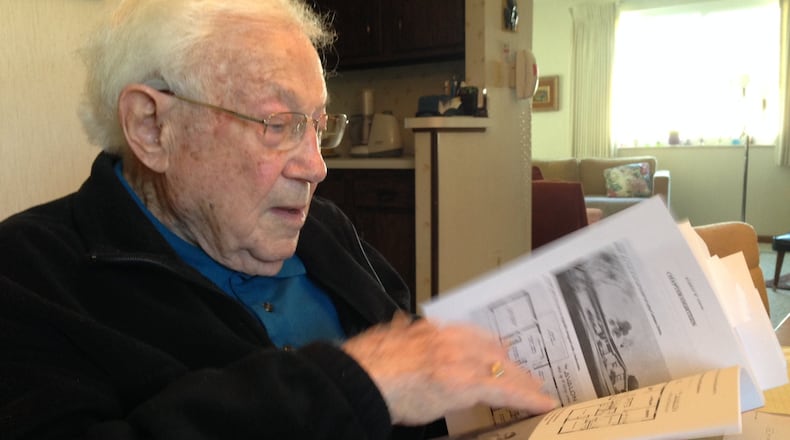Of course, all of us knew that we must never forget the horrors of the Holocaust. Bob was lucky enough to escape the worst of it after Nazi thugs forced him to play the violin while they savagely beat his father. Bob became a patriot in his American refuge, served in the war against Japan, and then served for years as a highly skilled military intelligence officer.
His community service, creation of the Holocaust Memorial here and his years with the Boy Scouts are testimony to his drive to make the world a better place. But his family’s memorial recollections at his funeral put words to that: “Never take your freedom for granted.”
That advice stands out like a beacon in the book “The Dressmakers of Auschwitz” by Lucy Adlington. The stories of the women who “sewed to survive” are remarkable for the fact that they tried to live just ordinary everyday lives as the Nazi nightmare enveloped them. They took their freedom for granted as they acted just as Americans have done – dreamed of success, of comfort for their families and of generations to come benefiting from their hard work.
These women lived in a time when there were high hopes that the new military threats – not the old rivalries among royalty – could be dealt with by sensible people negotiating with rational people to keep the peace and keep family dreams alive. We must not forget what happened.
Hitler and his henchmen simply wanted power over others and clothed it in the false philosophy of Nazism. Seeking power over others is as old as mankind, but we failed to realize the blitzkrieg difference after World War I. It is even more different today with weapons of mass destruction that once seemed unimaginable.
Today there are three parts of the world where freedom cannot be taken for granted: Ukraine’s democracy, democratic Israel and our southern border. We know that freedom cannot survive Vladimir Putin. Dictatorship clothed in religion seeks death to Israel. And our reaction to illegal migration struggles with Kahn’s view of the U.S. as a haven for all freedom lovers.
Can sensible, rational people deal with the forces at work against freedom? It is a hard road ahead, and controversy already swirls about the view of some historians that the surrender of Afghanistan may come to be seen as the equivalent of Neville Chamberlain’s 1938 “peace in our time.”
It is entirely too easy for us to think that, somehow, someone else will make it all go away, or will assure us that even if it doesn’t, all will be well and we can go about our everyday affairs. There is a high cost to that, as the dressmakers found and as the Holocaust memorial tells us so eloquently.
“Never forget” instructs us from the past and guides us to the future.
William H. Wild is a member of the Dayton Exchange Club and a retired columnist and editor for numerous newspapers throughout his career, most notably as the editorial page editor of the Journal Herald in Dayton and associate editor for the Dayton Daily News.
About the Author


